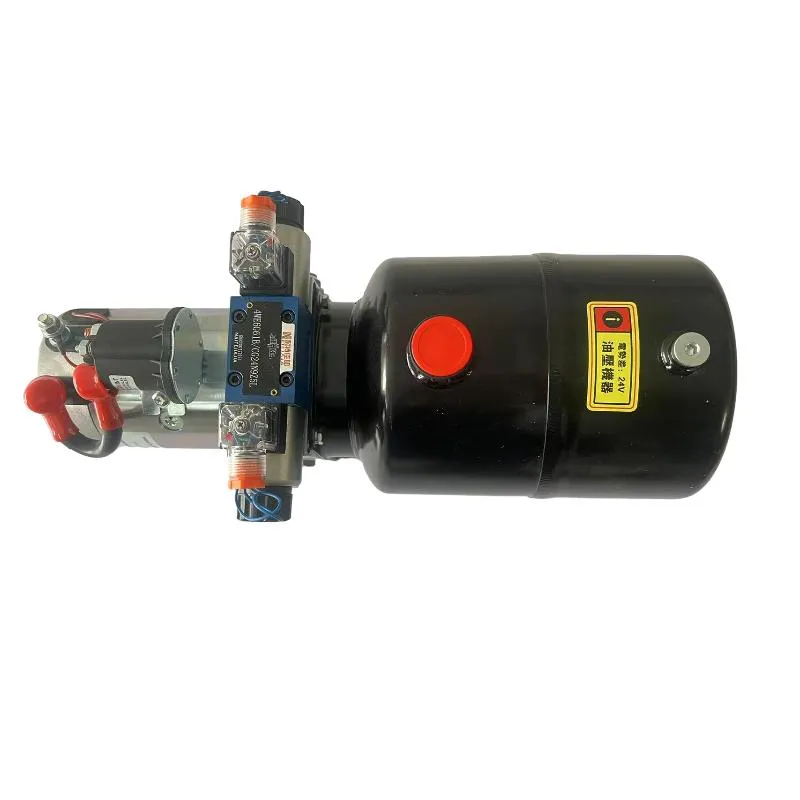Dec . 01, 2024 11:55 Back to list
Hydraulic Cylinder Production Facilities and Their Manufacturing Processes
Understanding Hydraulic Cylinder Manufacturing Factories
Hydraulic cylinders are crucial components in the machinery used across various industries, from construction and manufacturing to aerospace and automotive. As the demand for heavy machinery continues to grow, so too does the need for efficient and reliable hydraulic cylinder manufacturing. This article explores the key aspects of hydraulic cylinder manufacturing factories, including their processes, technologies, and the challenges they face.
The Manufacturing Process
The manufacturing of hydraulic cylinders typically involves several intricate steps, beginning with the procurement of raw materials. Most hydraulic cylinders are made from high-strength steel or aluminum because of their excellent mechanical properties and resistance to wear and tear. Factories need to ensure that the materials meet specific standards to guarantee the durability and reliability of the final product.
The manufacturing process often starts with cutting and shaping the raw materials into the required dimensions. This is usually done using advanced machining technologies such as Computer Numerical Control (CNC) machining, which ensures precision and efficiency. Once the rough shapes are formed, various machining processes, including drilling, grinding, and boring, are employed to create the exact specifications required for the hydraulic cylinder components.
After the components are machined, they undergo an assembly process. This is where the cylinder barrel, piston, seals, and other components are put together. Precision is vital during this stage, as even minor misalignments can lead to significant failures during operation.
Testing and Quality Control
A critical aspect of hydraulic cylinder manufacturing is stringent testing and quality control. Once assembled, each hydraulic cylinder is subjected to various tests to ensure its performance and reliability. These tests may include hydrostatic testing, where the cylinder is filled with fluid and subjected to pressure to check for leaks and structural integrity, as well as functional testing to ensure that it operates as intended under load.
Quality control extends beyond testing; it also encompasses the inspection of raw materials and components throughout the manufacturing process. Implementing rigorous quality assurance protocols helps manufacturers avoid costly recalls and enhance their reputation in the competitive hydraulic market.
hydraulic cylinder manufacturing factories

Technology and Innovation
The hydraulic cylinder manufacturing industry continuously evolves, driven by advancements in technology and innovations. Automation has become a significant trend, with many factories incorporating robotics to speed up production while maintaining high-quality standards. Automated systems can perform repetitive tasks with precision, reducing labor costs and minimizing human error.
Furthermore, the integration of smart technology, such as Internet of Things (IoT) devices, allows for real-time monitoring of machinery performance and predictive maintenance. This data-driven approach not only improves efficiency but also enhances the lifespan of the production equipment.
Challenges Facing Manufacturers
Despite the advancements and modern technologies, hydraulic cylinder manufacturers face several challenges. Fluctuating raw material prices can significantly impact production costs, as can supply chain disruptions. Additionally, manufacturers must stay compliant with various international standards and regulations, which can vary depending on the industry and geographical location.
Furthermore, as industries shift towards sustainability, hydraulic cylinder manufacturers are increasingly pressured to adopt environmentally friendly practices. This includes reducing waste during production and designing cylinders that are more energy-efficient during operation.
Conclusion
Hydraulic cylinder manufacturing factories play a vital role in supporting the machinery that drives our economy. By combining precision engineering with cutting-edge technology, these manufacturers produce crucial components that have wide-ranging applications. While challenges abound, the industry continues to innovate and adapt, ensuring that hydraulic cylinders remain a cornerstone of modern machinery. As technology progresses and the demand for reliable hydraulic systems grows, the importance of these manufacturing facilities cannot be overstated.
-
Fork Lift Power Units - Hebei Shenghan | Efficiency, Reliability
NewsJul.13,2025
-
1.5-Ton Turbocharged Cylinder-Hebei Shenghan|Hydraulic Solution,Energy Efficiency
NewsJul.13,2025
-
Auto Hoist Power Units-Hebei Shenghan|Efficiency&Industrial Lifting
NewsJul.13,2025
-
Double Acting Power Units-Hebei Shenghan|Hydraulic Solutions,Industrial Efficiency
NewsJul.13,2025
-
1.5 Ton Lifting Cylinder 70/82-40-290-535 - High-Performance Hydraulic Solution | Hebei Shenghan
NewsJul.13,2025
-
Fork Lift Power Units - Hebei Shenghan | Efficiency&Reliability
NewsJul.13,2025
